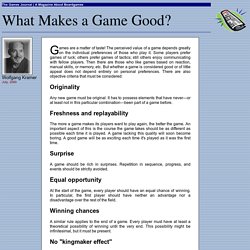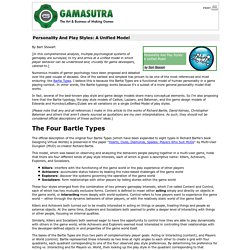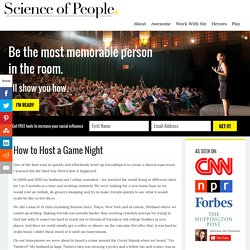

What Makes a Game Good? Games are a matter of taste!

The perceived value of a game depends greatly on the individual preferences of those who play it. Some players prefer games of luck; others prefer games of tactics; still others enjoy communicating with fellow players. Then there are those who like games based on reaction, manual skills, or memory, etc. But whether a game is considered good or of little appeal does not depend entirely on personal preferences.
There are also objective criteria that must be considered: Originality Any new game must be original. Freshness and replayability The more a game makes its players want to play again, the better the game. Surprise A game should be rich in surprises. Equal opportunity At the start of the game, every player should have an equal chance of winning. Winning chances A similar rule applies to the end of a game. No "kingmaker effect" A game loses its appeal if, at any stage, a player who no longer has any hope of winning can somehow determine the winner.
Uniformity. Personality And Play Styles: A Unified Model. Personality And Play Styles: A Unified Model By Bart Stewart [In this comprehensive analysis, multiple psychological systems of gameplay are surveyed, to try and arrive at a unified model in which player behavior can be understood and, crucially for game developers, catered to.]

Numerous models of gamer psychology have been proposed and debated over the past couple of decades. One of the earliest and simplest has proven to be one of the most referenced and most enduring: the Bartle Types. I believe this is because the Bartle Types are a functional model of human personality in a game playing context. In fact, several of the best-known play style and game design models share many conceptual elements. (Please note that any and all references I make in this article to the works of Richard Bartle, David Keirsey, Christopher Bateman and others that aren't clearly sourced as quotations are my own interpretations. The Bartle Types The Keirsey Temperaments (Stewart Format) (click for full size) 1. I Officially Resign from Adulthood. Some days are just bad days when we wish we could give up this whole adult charade, go to recess, and get back to when times were a bit simpler.

Amen. Life seems to get too serious as an adult, more responsibilities mean more worries, more stress, and more body aches. I’ve spoken to hundreds of people about this exact issue and posed the question: “What does play mean to you?” Sadly, often the response is a blank look, as if the term “play” is a foreign word. Then I ask them to remember what play was like when they were kids. Even just this reflection can begin to rekindle the flames of play. If, like me, at times you feel like giving up on adulthood, then I ask you, “What would the days, weeks and months ahead be like if there was more of unstructured, playful appointments with yourself in your life?”
The Psychological Pros and Cons of Pokémon Go.
Game Design. Collective Intelligence Games. Improvisational Theatre. Learning How to Learn. Creative Inspiration. How to Host a Game Night. One of the best ways to quickly and effortlessly level-up friendships is to create a shared experience.

I learned this the hard way. Here’s how it happened: In 2009 and 2010 my husband and I urban nomaded – we traveled the world living in different cities for 1 to 3 months at a time and working remotely. We were looking for a new home base so we would rent an Airbnb, do grocery shopping and try to make friends quickly to see what it would really be like to live there.
We did a total of 14 cities including Buenos Aires, Tokyo, New York and of course, Portland where we ended up settling. On our honeymoon we were about to board a cruise around the Greek Islands when we heard, “Go Timbers!” When we moved to Portland it was easy to have more game nights, go to wine country and hang out together. And then I realized it was the experience. This is when I started hosting game nights. You learn together. How to Host the Perfect Game Night: Have I convinced you? #1: What’s the Goal? The Best Games for Bonding. I LOVE playing games – board games, people games, talking games, guessing games.

AND I find it is one of the best ways to connect with people. People always ask me what my favorite games are for different scenarios.
Jimmy Fallon Games. Play Therapy.